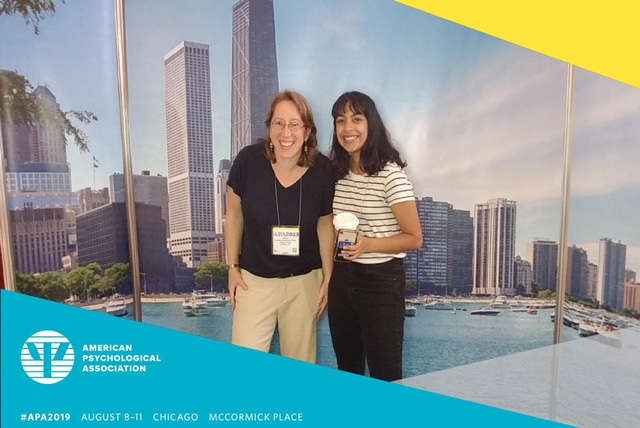
In early August, I had the opportunity to go to the American Psychological Association convention in Chicago, IL, because Dr. Grossman’s and my research was chosen to be presented in a symposium called Enhancing At-Risk Teens' Resilience -- Extended Family's Role in Promoting Teens' Sexual Health. Dr. Grossman, Dr. Judith B. Cornelius of UNC Charlotte, and Dr. Emma Sterrett-Hong of the University of Louisville shared their research at the symposium.
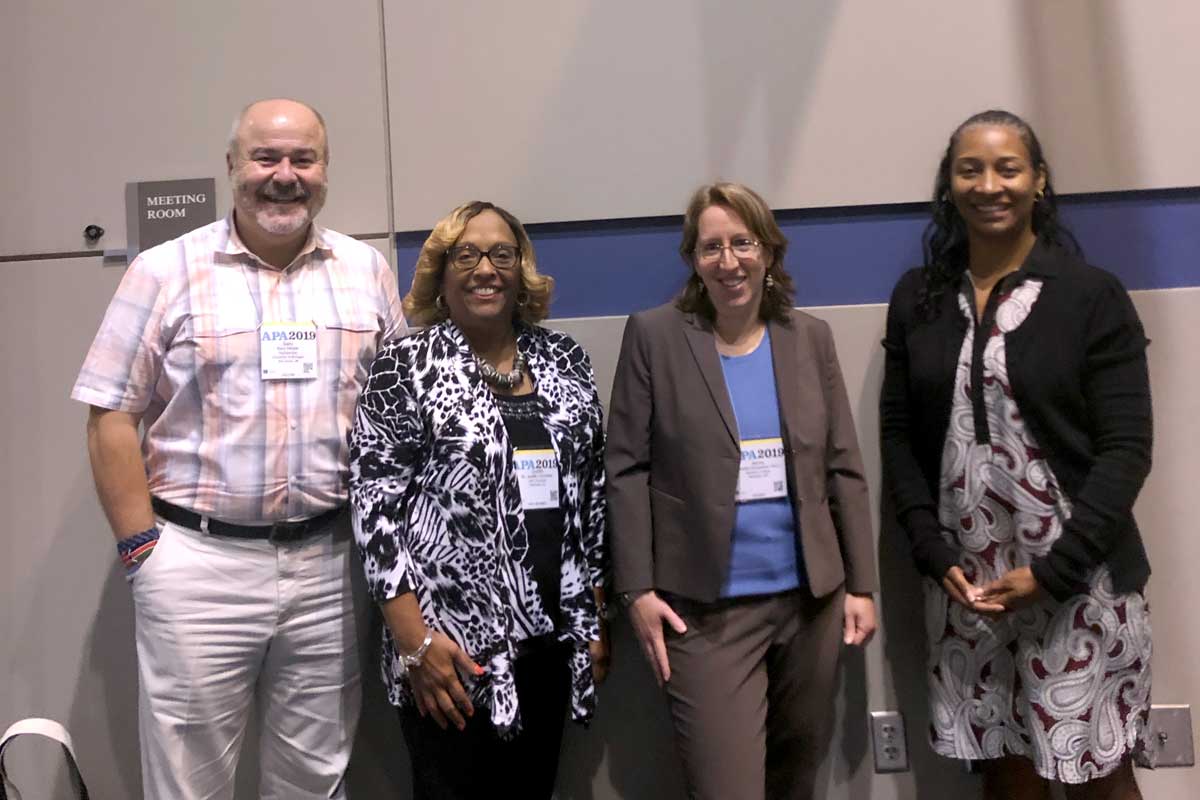 At the end of the presentation, Dr. Gary W. Harper, another prominent researcher in the field at the University of Michigan, gave a summary statement. Then, a Question and Answer section allowed the audience to give their thoughts and ask questions. One question about the applicability and implementation of the work was particularly interesting and sparked questions about policy making and action programs -- potentially a space for future collaboration!
At the end of the presentation, Dr. Gary W. Harper, another prominent researcher in the field at the University of Michigan, gave a summary statement. Then, a Question and Answer section allowed the audience to give their thoughts and ask questions. One question about the applicability and implementation of the work was particularly interesting and sparked questions about policy making and action programs -- potentially a space for future collaboration!
After the symposium, the presenters discussed potential connections and room for future collaboration. Besides our symposium section, Dr. Grossman and I attended a couple of other presentations about aging and dementia and explored the different booths. I had the opportunity to talk to interesting people about everything ranging from graduate school options to healthcare technology working to improve mental health diagnoses.
Apart from the conference, I was able to explore Chicago on my own for a couple of hours! I walked along the waterfront, saw the very famous Bean, and sat in Grant Park for a while. It was my first time in the city, and I can definitively say that Chicago pizza is the best.
Overall, my experience was an exciting chance for me to see the research that I’ve worked so hard on make it to the “big stage” and talk to people who were interested in similar things. I also learned so much about the plethora of post grad options to continue in this field and similar ones. I’m so grateful to the Lloyd family and the Class of 1967 for funding my internship at the Wellesley Centers for Women and for making it possible for me to attend this conference!
Anmol Nagar ’21 was the Linda Coyne Lloyd Intern at the Wellesley Centers for Women during the 2018-19 academic year. She studies economics and psychology at Wellesley College and will be studying at the London School of Economics for her junior year.


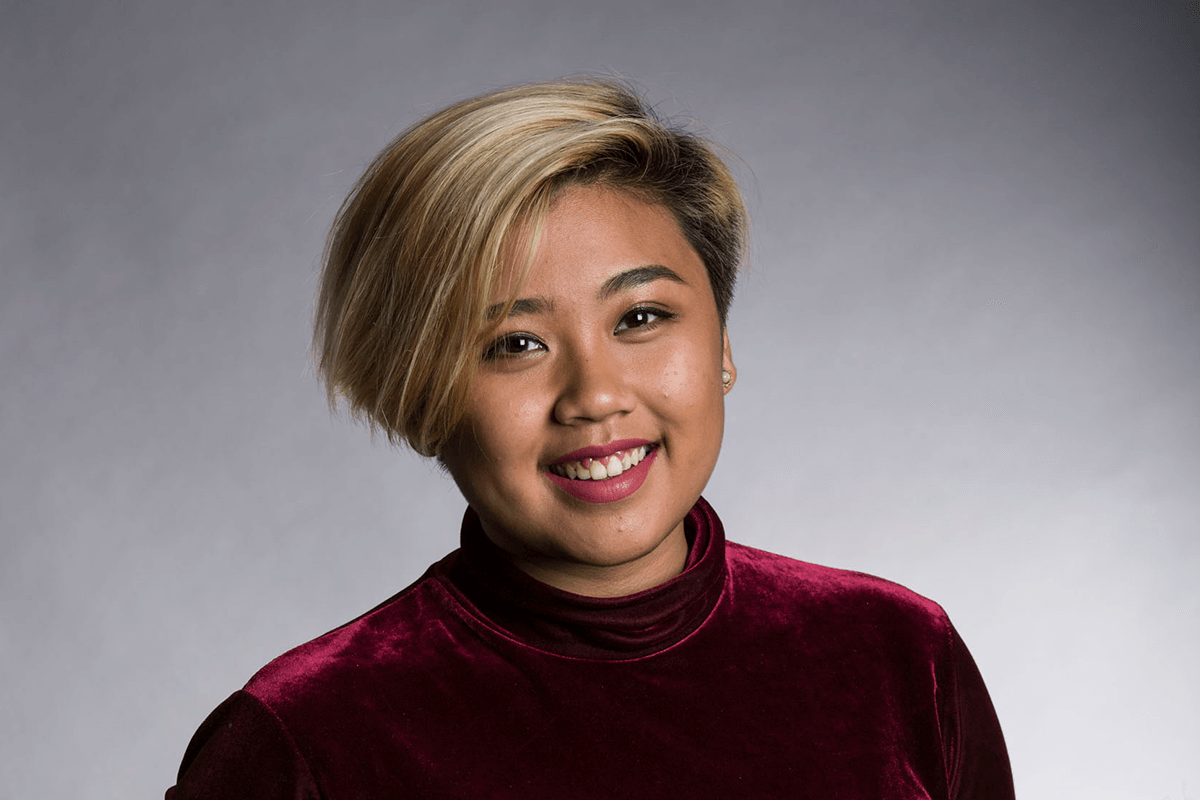 By the end of my first year at Wellesley College, I knew that I wanted to explore the world of research. I had taken the first of many gender studies courses to come, and left class with a head full of questions that I not only wanted answers to, but wanted to take a stake at answering. A stroke of luck brought me to an event for students to meet with research scientists at the Wellesley Center for Women. A stroke of better luck brought me to Dr.
By the end of my first year at Wellesley College, I knew that I wanted to explore the world of research. I had taken the first of many gender studies courses to come, and left class with a head full of questions that I not only wanted answers to, but wanted to take a stake at answering. A stroke of luck brought me to an event for students to meet with research scientists at the Wellesley Center for Women. A stroke of better luck brought me to Dr. 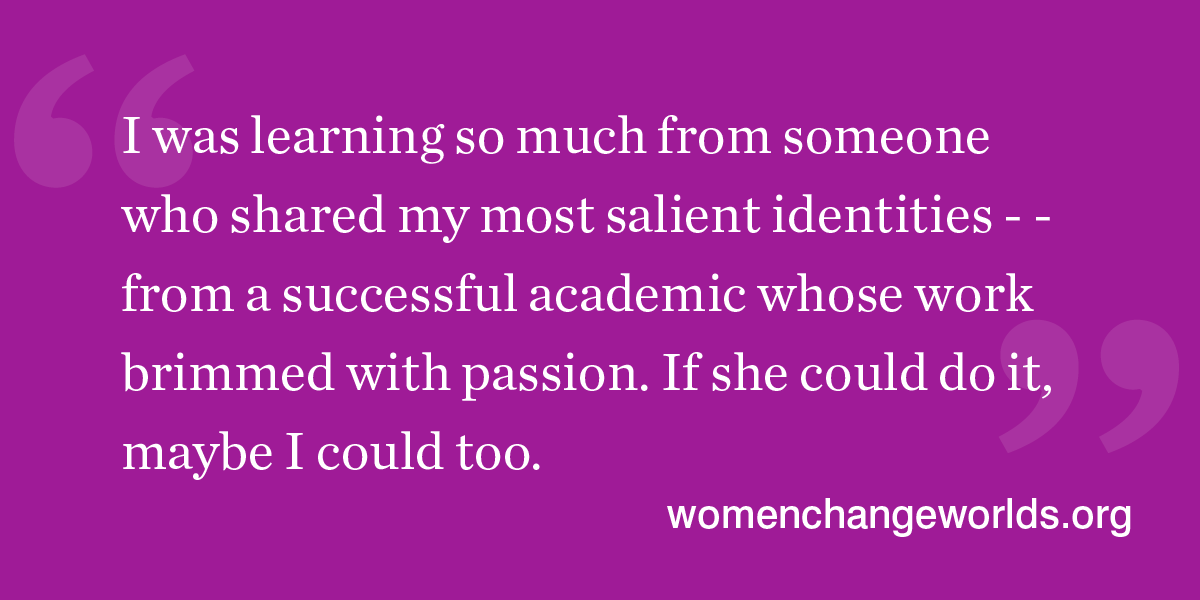 The power of representation became personal when I began to cultivate a mentor-mentee relationship with Linda. Our weekly/bi-weekly research check-ins were not only crucial for the advancement of the qualitative research we were conducting and my own research skills, but also for developing my own sense of worth and potential. Little by little, I was able to learn about Linda’s life and experiences, research and otherwise. I found out she was Thai (like me)! I found out that she also struggled in her undergraduate years (who knew that researchers were not perfect?). She spoke about her queerness in ways that normalized my own burgeoning questions about sexuality and gender. She validated my questions, hopes, and fears no matter how naive, incomplete, or overwhelming. I was learning so much from someone who shared my most salient identities - - from a successful academic whose work brimmed with passion. If she could do it, maybe I could too.
The power of representation became personal when I began to cultivate a mentor-mentee relationship with Linda. Our weekly/bi-weekly research check-ins were not only crucial for the advancement of the qualitative research we were conducting and my own research skills, but also for developing my own sense of worth and potential. Little by little, I was able to learn about Linda’s life and experiences, research and otherwise. I found out she was Thai (like me)! I found out that she also struggled in her undergraduate years (who knew that researchers were not perfect?). She spoke about her queerness in ways that normalized my own burgeoning questions about sexuality and gender. She validated my questions, hopes, and fears no matter how naive, incomplete, or overwhelming. I was learning so much from someone who shared my most salient identities - - from a successful academic whose work brimmed with passion. If she could do it, maybe I could too.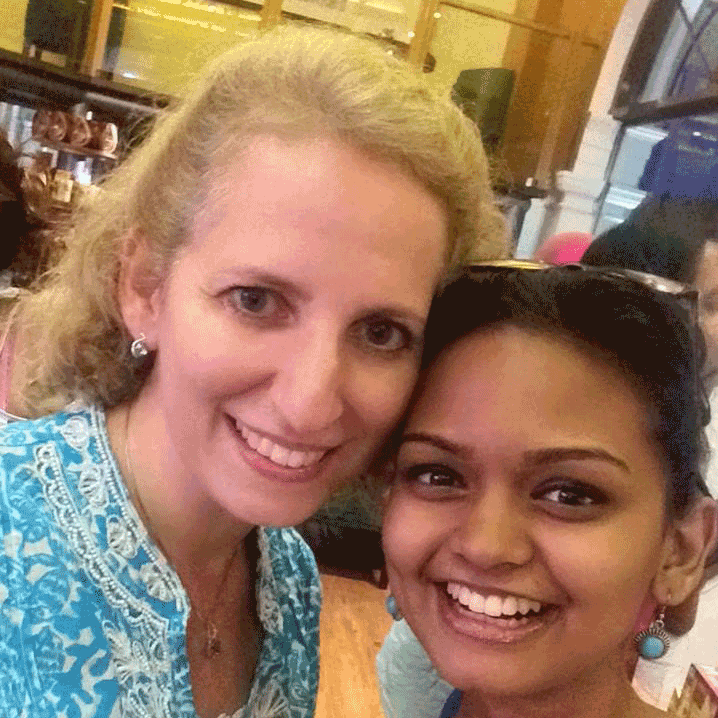 Mentorship was the reason I came to Wellesley College, all the way across the globe from Sri Lanka. Back in 2013 on the day of the United Nations’
Mentorship was the reason I came to Wellesley College, all the way across the globe from Sri Lanka. Back in 2013 on the day of the United Nations’ 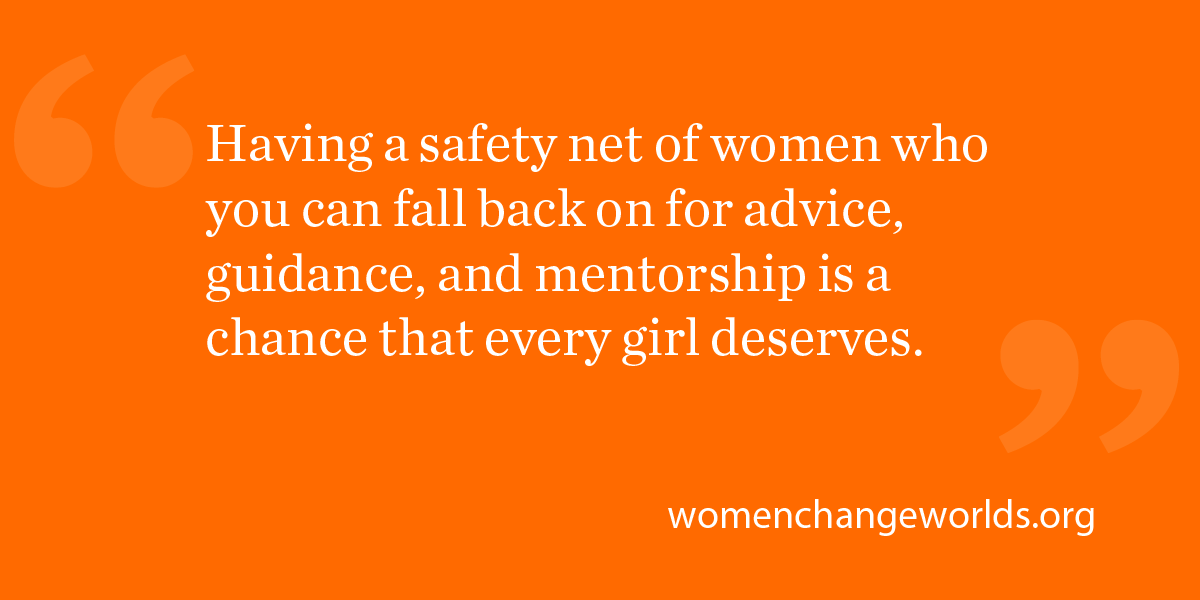
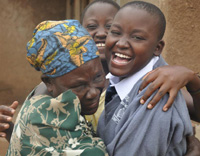 Social Justice Dialogue: Eradicating Poverty
Social Justice Dialogue: Eradicating Poverty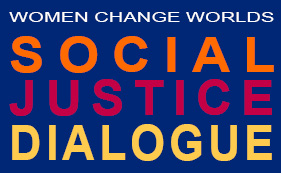
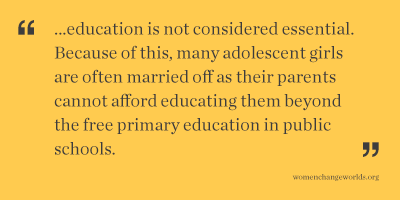 I was fortunate, however, that my parents were not desperate for the bride price when I was a growing up. I could have been sold for a cow or a goat. Instead, at age 14, when I was feeling hopeless and working as a barmaid, a wonderful family in Kentucky (who knew one of my cousins from when they had done missionary work years earlier) enabled my return to school by paying my school fees for five years. I went on to earn my college degree before working with organizations that were striving to improve the lives of poor families in Africa.
I was fortunate, however, that my parents were not desperate for the bride price when I was a growing up. I could have been sold for a cow or a goat. Instead, at age 14, when I was feeling hopeless and working as a barmaid, a wonderful family in Kentucky (who knew one of my cousins from when they had done missionary work years earlier) enabled my return to school by paying my school fees for five years. I went on to earn my college degree before working with organizations that were striving to improve the lives of poor families in Africa.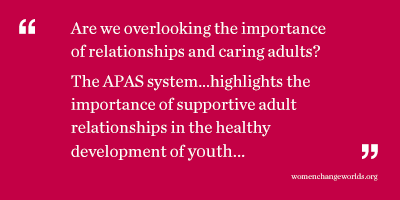 According to Benard, “we are all born with innate resiliency, with the capacity to develop the traits commonly found in resilient survivors: social competence (responsiveness, cultural flexibility, empathy, caring, communication skills, and a sense of humor); problem-solving (planning, help-seeking, critical and creative thinking); autonomy (sense of identity, self-efficacy, self-awareness, task-mastery, and adaptive distancing from negative messages and conditions); and a sense of purpose and belief in a bright future (goal direction, educational aspirations, optimism, faith, and spiritual connectedness)” (Benard, 1991).
According to Benard, “we are all born with innate resiliency, with the capacity to develop the traits commonly found in resilient survivors: social competence (responsiveness, cultural flexibility, empathy, caring, communication skills, and a sense of humor); problem-solving (planning, help-seeking, critical and creative thinking); autonomy (sense of identity, self-efficacy, self-awareness, task-mastery, and adaptive distancing from negative messages and conditions); and a sense of purpose and belief in a bright future (goal direction, educational aspirations, optimism, faith, and spiritual connectedness)” (Benard, 1991).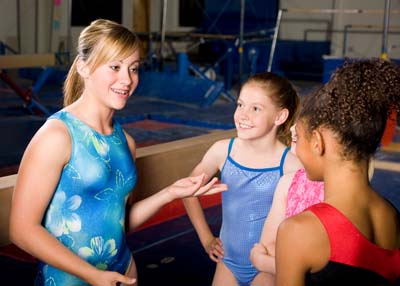
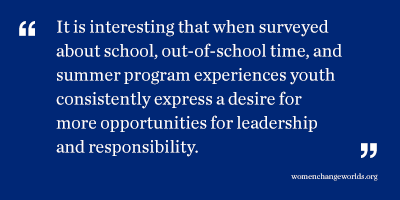 to have a more accessible image of where practice and commitment could get them was inspirational. It’s more than just the final score.
to have a more accessible image of where practice and commitment could get them was inspirational. It’s more than just the final score.